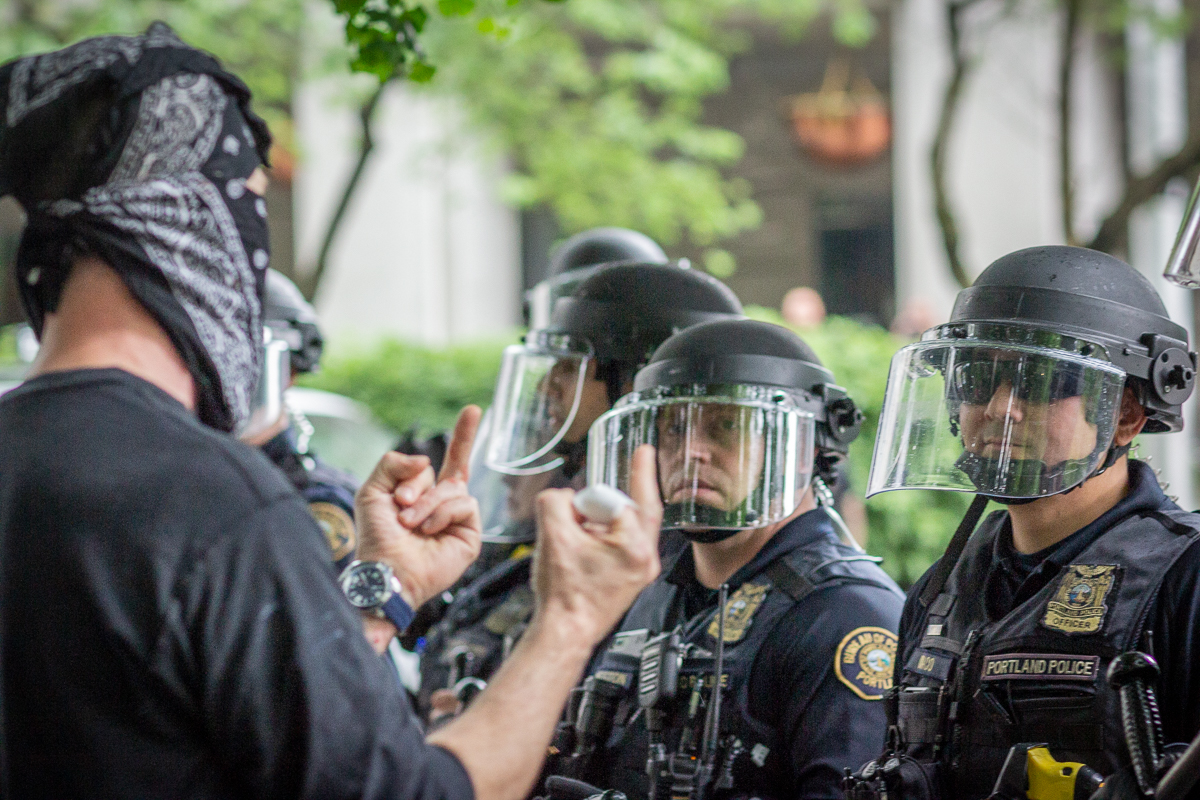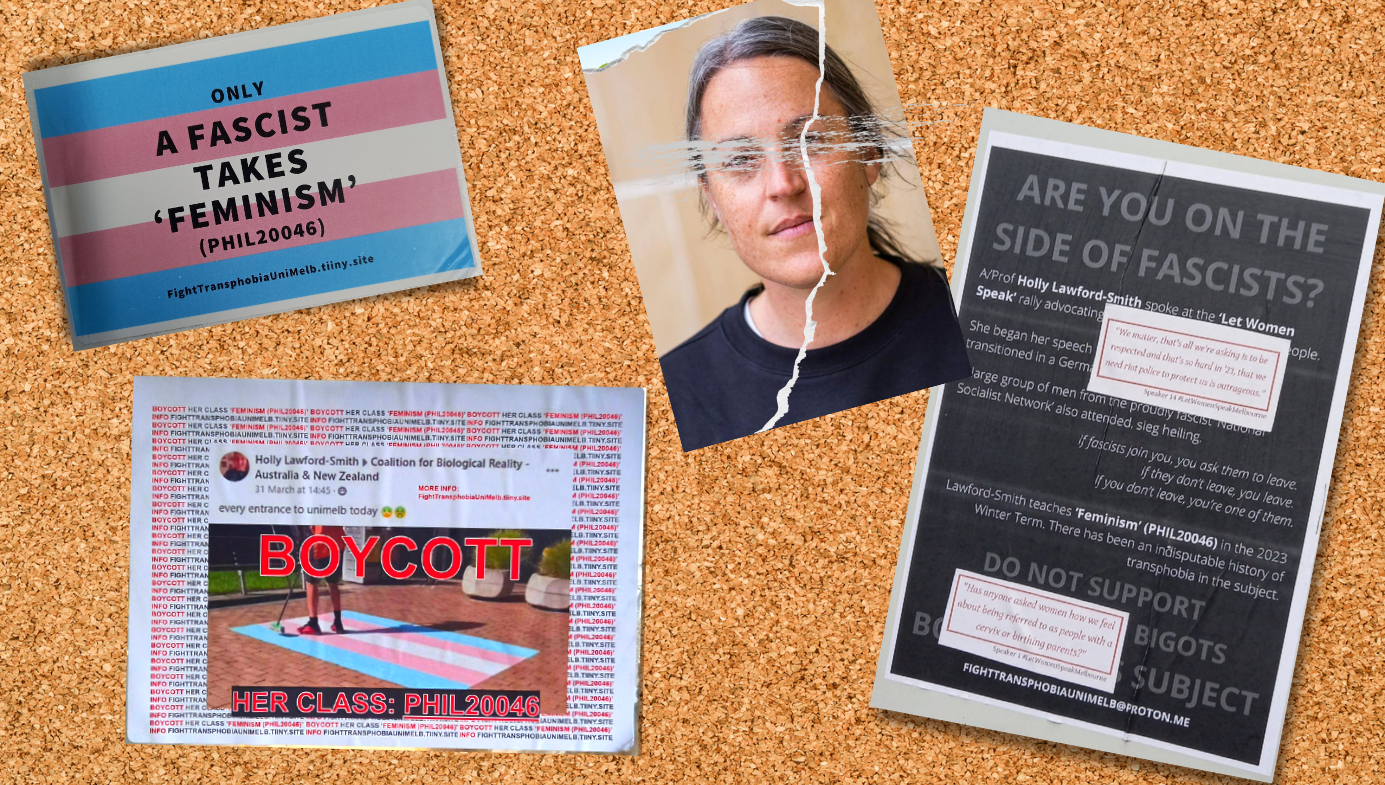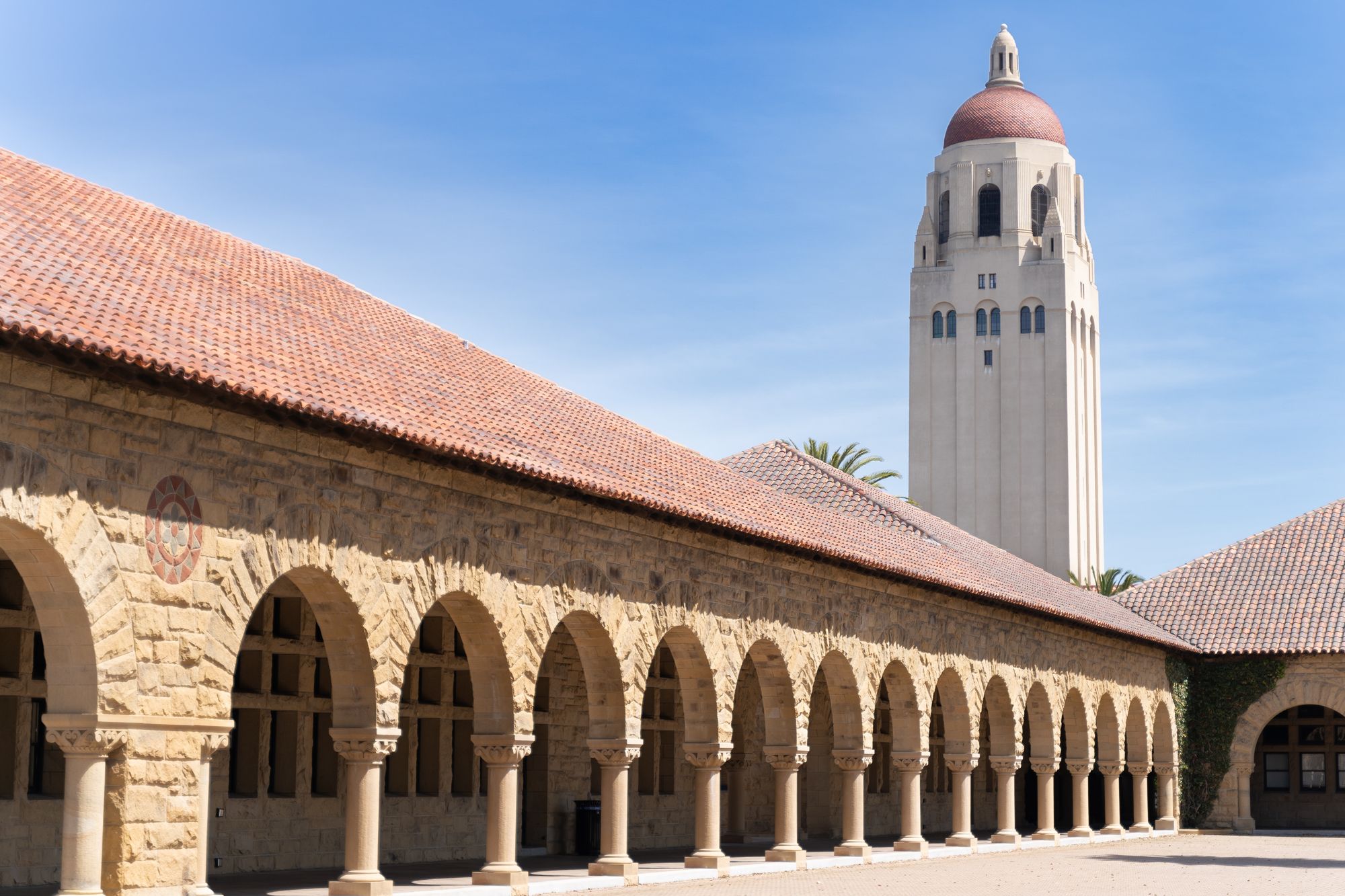Diversity
The Hysterical Campus
When speakers need police escort on and off college campuses, an alarm bell should be going off that something has gone seriously awry.

Editor’s note: The following text is excerpted with permission from The Diversity Delusion: How Race and Gender Pandering Corrupt the University and Undermine Our Culture, by Heather Mac Donald, published by St. Martin’s Press. © 2018 Heather Mac Donald.
Where are the faculty? American college students are increasingly resorting to brute force, and sometimes criminal violence, to shut down ideas that they don’t like. Yet when such travesties occur, the faculty are, with few exceptions, missing in action, though they have themselves been given the extraordinary privilege of tenure to protect their own liberties of thought and speech. It is time for them to take their heads out of the sand.
I was the target of such silencing tactics two days in a row in 2017, the more serious incident at Claremont McKenna College in Claremont, California, and a less virulent one at UCLA.
The Rose Institute for State and Local Government at Claremont McKenna had invited me to meet with students and to give a talk in April about my book The War on Cops. Several calls went out on Facebook to “shut down” this “notorious white supremacist fascist Heather Mac Donald.” A Facebook post from “we, students of color at the Claremont Colleges” announced grandiosely that “as a community, we CANNOT and WILL NOT allow fascism to have a platform. We stand against all forms of oppression and we refuse to have Mac Donald speak.” A Facebook event titled “Shut Down Anti-Black Fascist Heather Mac Donald” and hosted by “Shut Down Anti-Black Fascists” encouraged students to protest the event because I allegedly “condemn [the] Black Lives Matter movement,” “support racist police officers,” and “support increasing fascist ‘law and order.’” (My supposed fascism consists in trying to give voice to the millions of law-abiding minority residents of high-crime areas who support the police and are desperate for more law-enforcement protection.)
The event organizers notified me a day before the speech that a protest was planned and that they were considering changing the venue from CMC’s Athenaeum to one with fewer glass windows and easier egress. When I arrived on campus, I was shuttled to what was, in effect, a safe house: a guest suite for campus visitors, with blinds drawn. I could hear the growing crowds chanting and drumming, but I could not see the auditorium that the protesters were surrounding. One female voice rose above the chants with particularly shrill hysteria. From the balcony, I saw a petite blond female walk by, her face covered by a Palestinian keffiyeh head scarf and carrying an amplifier on her back for her bullhorn. A lookout was stationed about forty yards away, and students were seated on the stairway under my balcony, plotting strategy.
Since I never saw the events outside the Athenaeum, which remained the chosen venue, an excellent report from the student newspaper, The Student Life, provides details of the scene:
The protesters, most of whom wore all black, congregated outside Honnold/Mudd Library at 4 p.m. to stage the action. “We are here to shut down the fucking fascist,” announced an organizer to a crowd of around 100 students. The protesters subsequently marched to the Ath around 4:30 while chanting. An organizer shouted “How do you spell racist?” into a megaphone; the marchers responded “C-M-C.”
When they arrived, the protesters were greeted by around two dozen Campus Safety officers and Claremont police officers, stationed at various locations around the building. Protestors ignored the officers (who did not obstruct them) and the makeshift white fences sectioning off areas of Flamson Plaza, enveloping each of the Ath’s entrances with multiple rows of students linking arms. White students were encouraged to stand in front to form a barrier between students of color and the police.
The protesters continued their chants, including “hey hey, ho ho, Heather Mac has got to go,” “shut it down,” and—most frequent and sustained—“black lives matter.” Some of the officers appeared visibly uncomfortable during the chant of “from Oakland to Greece, fuck the police.”
Keck Science professor Anthony Fucaloro pushed against and grappled with the crowd of protesters in an unsuccessful attempt to reach the door. Garrett Ryan, CM ’17, brought a large speaker to the Hub’s patio, blasting Sousa’s patriotic march “The Stars and Stripes Forever” to provoke the protesters. A woman who ran up to him managed to steal his audio cable after a brief scuffle, cutting off the music and garnering cheers from the protesters when she returned to the crowd.
“It was not well-received,” Ryan told TSL.
Steven Glick, PC ’17, coeditor-in-chief of the conservative Claremont Independent publication, attempted to livestream the protest but was swarmed by protesters who blocked his phone.
Several administrators attended the protest and stood to the side. They told TSL that they saw their role as ensuring student safety, but they also sympathized with the protesters’ views. “Black Lives Matter is really at my heart,” said Pomona associate dean Jan Collins-Eaglin.
Of all the chants, “How do you spell racist?” “C-M-C,” was the most absurd (and didn’t even rhyme). “Racist” CMC is so eager for “diverse” students that it has historically admitted black and Hispanic students with an average 200-point-lower SAT score than white and Asian students.
Shortly before 6 p.m., I was fetched by an administrator and a few police officers to take an out-of-the-way elevator into the Athenaeum. The massive hall, where I was supposed to meet with students for dinner before my talk, was empty — the mob, by then numbering close to two hundred, had succeeded in preventing anyone from entering. The large plate-glass windows were covered with translucent blinds, so that from the inside one could see only a mass of indistinct bodies pounding on the windows. The administration had decided that I would live stream my speech in the vacant room in order to preserve some semblance of the original plan. The podium was moved away from a window so that, as night fell and the lights inside came on, I would not be visible to the agitators outside.
I prefaced my speech by observing that I had heard chants for the last two hours that “black lives matter.” I hoped, therefore, that the protesters had been equally fervent in expressing their outrage when five-year-old Aaron Shannon Jr. was killed on Halloween 2010 in South Central Los Angeles, while proudly showing off his Spider Man costume. A 26-year-old member of Watts’s Kitchen Crips sent a single bullet through Aaron’s head, and also shot Aaron’s uncle and grandfather. I said that I hoped the protesters also objected when nine-year-old Tyshawn Lee was lured into an alley in Chicago with the promise of candy in November 2015 and assassinated by gang enemies of Tyshawn’s father. The murderers’ original plan had been to cut off Tyshawn’s fingers and send them to his mother. While Black Lives Matter protesters have, in fact, ignored all such mayhem, the people who have concerned themselves are the police, I said. And though it was doubtful that any of the protesters outside had ever lost a loved one to a drive-by shooting, if such a tragedy ever did happen, the first thing that he or she would do would be to call the police.
I completed my speech to the accompaniment of chants and banging on the windows. I was able to take two questions from students via live streaming. But by then, the administrators and police officers in the room, who had spent my talk nervously staring at the windows, decided that things were growing too unruly outside to continue. I was given the cue that the presentation was over. Walkie-talkies were used to coordinate my exit from the Athenaeum’s kitchen to the exact moment that a black, unmarked Claremont Police Department van rolled up. We passed startled students sitting on the stoop outside the kitchen. Before I entered the van, one student came up and thanked me for coming to Claremont. We sped off to the police station.

The previous night, I actually succeeded in delivering a talk on policing to the audience who had come to hear it; such heretofore ordinary circumstances are now noteworthy. My hosts, the UCLA College Republicans, had titled my presentation “Blue Lives Matter,” which campus activists viewed as an unspeakable provocation. After I finished speaking and welcomed questions, pandemonium broke out. Protesters stormed the front of the classroom, demanding control of the mic and chanting loudly: “America was never great” and “Black Lives Matter, they matter here,” among other insights. After nearly ten minutes of shouting, one of the organizers managed to persuade some students to line up for questions. The College Fixpaper captured the subsequent interaction:
A black female asked whether “black victims killed by cops” mattered.
“Yes,” Mac Donald replied. “And do black children that are killed by other blacks matter to you?”
At that the room erupted in gasps and angry moans and furious snaps, and the young lady who asked the original question began to yell at Mac Donald, pointing her finger and repeating the original question. . . .
“Of course I care [that black victims are killed by cops], and do you know what,” Mac Donald said. “ There is no government agency more dedicated to the proposition that black lives matter than the police.”
Again, gasps and moans filled the auditorium. “Bullshit! Bullshit!” a young woman off camera could be heard screaming.
Mac Donald continued: “The crime drop of the last 20 years that came to a screeching halt in August 2014 has saved tens of thousands of minority lives. Because cops went to those neighborhoods and they got the dealers off the street and they got the gang-bangers off the street.”
Mac Donald took more questions and at times was able to articulate her points during the Q&A, but was also often interrupted by angry audience members shouting out things such as:
“I don’t trust your numbers.”
“Why do white lives always need to be put above everybody else? Can we talk about black lives for one second?”
“The same system that sent police to murder black lives…”
“You have no right to speak!”
“What about white terrorism?!”
To the inevitable claim that poverty causes gun violence, I responded that if students really believed in that causation, they should be concerned that mass low-skilled immigration was driving down wages for the American poor. That provoked a new chant: “Say it loud! Say it clear! Immigrants are welcome here.”
At 8 p.m., the organizers decided to end the event, and I was hustled out of the room with a police escort.

The UCLA administration never acknowledged the disruption of my presentation and interaction with students. The Claremont McKenna administration did, however, respond both before and after the incident. Two days ahead of my speech, the director of the Rose Institute, Andrew Busch, sent out an email decrying the use of the epithet “racist” “as a bludgeon with which to shut up critics or keep friends in line.” Busch optimistically put matters in the conditional: “If we ever accept that approach we will have taken a giant step toward surrendering freedom of thought and expression”—as if intimidation via the R-word is not already routine on and off campuses. Busch graciously tried to provide a neutral summary of my views and noted that I, too, aim to protect black lives.
A few minutes after I was escorted out of the Athenaeum, a campus-wide missive from Vice President for Academic Affairs and Dean of the Faculty Peter Uvin expressed disappointment that people could not attend the lecture, but lauded the fact that the lecture was live streamed. Uvin, a government professor specializing in development and human rights, went on to establish his bona fides with the social-justice crowd: “I fully understand that people have strong opinions and different—often painful—experiences with the issues Heather Mac Donald discusses. I also understand that words can hurt. And in a world of unequal power, it is more often than not those who have a history of exclusion who are being hurt by words. I support everyone’s right to make this world a better one.” This may not have been the best moment to reaffirm the idea that undergirds such silencing protests: that speech can damage allegedly excluded or marginalized minorities.
The next day, CMC president Hiram Chodosh, a former international law professor, weighed in. He explained the failure to intervene against the protesters: “Based on the judgment of the Claremont Police Department, we jointly concluded that any forced interventions or arrests would have created unsafe conditions for students, faculty, staff, and guests. I take full responsibility for the decision to err on the side of these overriding safety considerations.” Chodosh said that students who violated school policies by blocking access to buildings would be held accountable.
A poorly written editorial in the student newspaper attributed to me positions I have never taken and quoted me wildly out of context. Such misunderstanding goes with the territory. But the editorialists’ explanation for why my talk had to be shut down revealed the “racism is everywhere” brainwashing that students at even a once relatively conservative campus like Claremont now receive: “If we allow her to speak at the Ath or attend her talk, we are amplifying her voice and enhancing her credibility. Last month, we proposed that writing and publishing an article, even if it’s ‘free of opinion,’ is not passive. This is a through line for many of our editorials this year: many actions that seem neutral in theory are actually entrenched in unconscious bias.”
When speakers need police escort on and off college campuses, an alarm bell should be going off that something has gone seriously awry. Of course, an ever-growing part of the faculty is the reason that police protection is needed in the first place. Professors in all but the hardest of hard sciences increasingly indoctrinate students in the belief that to be a non-Asian minority or a female in America today is to be the target of nonstop oppression, even, uproariously, if you are among the privileged few to attend a fantastically well-endowed, resource-rich American college. Those professors also maintain that to challenge that claim of ubiquitous bigotry is to engage in “hate speech” and that such speech is tantamount to a physical assault on minorities and females. As such, it can rightly be suppressed and punished. To those faculty, I am indeed a fascist, and a white supremacist, with the attendant loss of communication rights.
Hyperbole is part and parcel of political speech. But I would hope that there are some remaining faculty with enough of a lingering connection to reality who would realize that I and other conservatives are not a literal threat to minority students. To try to prevent me or other dissenting intellectuals from connecting with students is simply an effort to maintain the Left’s monopoly of thought. The fact that this suppression goes under the title of “antifascism” is particularly rich. I am reluctant to wield the epithet “fascist” as promiscuously as my declared opponents do. But it must be observed that if campus conservatives tried to use physical force to block Senator Elizabeth Warren from giving a speech, the New York Times would likely put the obstruction on the front page and the term “fascist” would be flying around like a swarm of hornets, followed immediately by the epithet “misogynist.” And when students and their fellow anarchists start breaking glass, destroying businesses, and assaulting perceived opponents, as they did during the Berkeley riots against Milo Yiannopoulos’s scheduled talk in February 2017, and to prevent sociologist Charles Murray from speaking at Middlebury College the following month, it is hard not to hear echoes of 1930s fascism.






